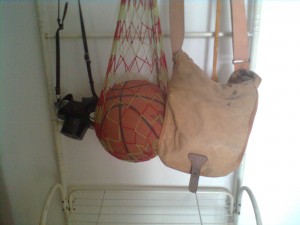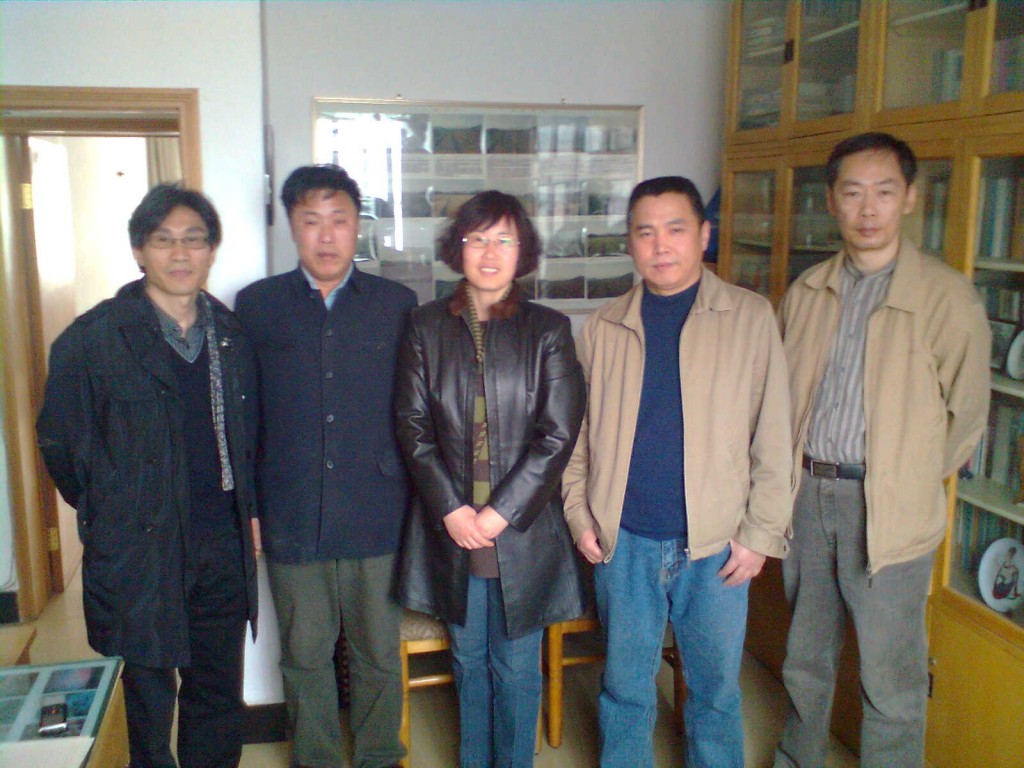Excerpts from Wei An’s “Life on Earth” appear in NER 36.2 in translation by Thomas Moran. For this “Behind the Byline,” we turn to the introduction Tom wrote for Cerise Press, which describes his visit to Wei An’s apartment in Changping and the author’s interest in Walden, the book that “changed his life.” Wei An died in 1999 at the age of thirty-nine.
 I visited Wei An’s apartment in the Beijing suburb of Changping with his sister, brother, and three friends. His basketball, camera, and canvas traveling bag are hanging inside the front door. Wei An’s study is as he left it; on the bookshelves are Chinese translations of the writers Wei An admired. They were almost all foreign. His handwritten manuscripts are kept in a box in a shuttered bottom shelf.
I visited Wei An’s apartment in the Beijing suburb of Changping with his sister, brother, and three friends. His basketball, camera, and canvas traveling bag are hanging inside the front door. Wei An’s study is as he left it; on the bookshelves are Chinese translations of the writers Wei An admired. They were almost all foreign. His handwritten manuscripts are kept in a box in a shuttered bottom shelf.
Between 1988 and 1995, Wei An wrote seventy-five short meditations on the things that fell within his observation and concern . . . Wei An’s final draft of “Life on Earth” is neatly written in blue ink; the penultimate draft is carefully corrected in red. Wei An wrote little, and he wrote slowly. His meticulous self-editing was one of the qualities that puzzled and charmed his friends. He had each of his visitors write a note on a postcard, and the day Wei An’s sister [Ma Jianxiu] opened Wei An’s apartment to us, the poet Shu Cai flipped through the postcards. Together with Wei An’s college classmate Zhou Xinjing, and the novelist Ning Ken, they reminisced. Wei An was sincere and naïve, the three agreed. Zhou said that when Wei An had visitors who did not know each other, he conducted solemn, formal introductions. The thoughtfully articulate Zhou, who has published a novel, imitated Wei An and chuckled. Shu Cai is an ex-diplomat and knows French; in the 1990s he got phone calls from Wei An at all hours pressing him for immediate translations of more work by Francis Jammes, Wei An’s favorite poet. The exuberant, energetic Ning Ken brought a basket of flowers and put on the table in front of Wei An’s photograph in the front hallway. He remembered going swimming with Wei An at a nearby reservoir they called with great satisfaction their own Walden Pond.

Wei An read Walden in Xu Chi’s translation in the winter of 1986-1987, and the book changed his life; he discovered he preferred what he called Thoreau’s “free, unrestrained, simple and open . . . organic” style to any form of writing he had previously encountered. Wei An wrote that his poetry, which he stopped writing when he read Walden, was “prose-like” and Thoreau’s prose was poetic. He said the form of writing that occupies the middle ground fit him. “Life on Earth” is somewhat like Walden with nine out of every ten sentences removed.